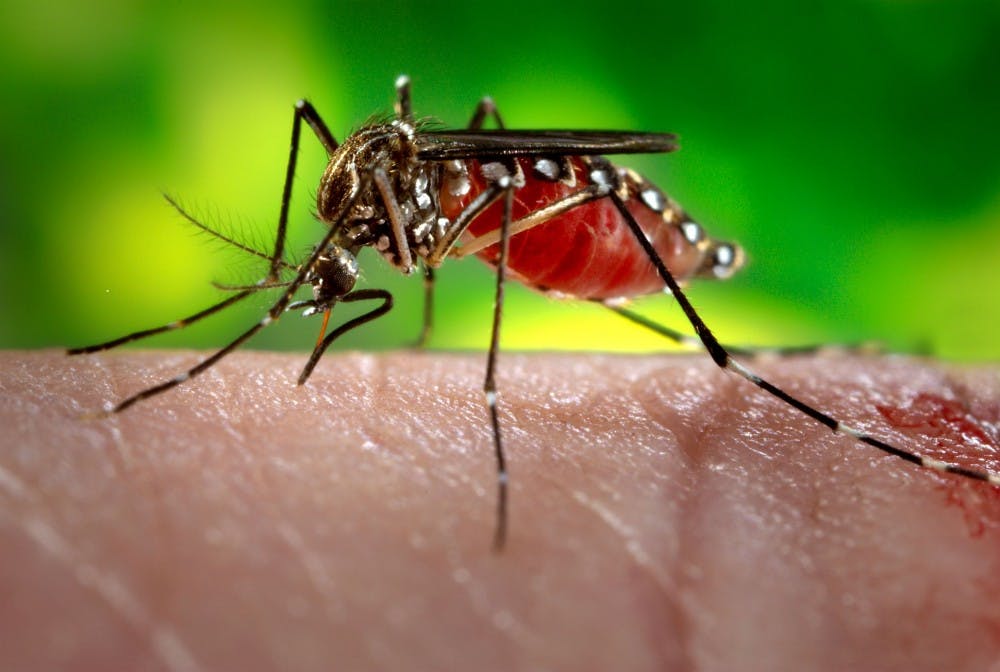Brazilian researchers at the University of São Paulo’s Institute of Biosciences (IB/USP) have found a potential therapeutic effect of the Zika virus (ZIKV) in tumors of the human central nervous system (CNS).
The largest Zika virus outbreak began around October 2013 in French Polynesia before spreading to the Americas around April 2015, affecting millions of people. The Zika virus is a mosquito-borne disease spread by infected Aedes, a species of mosquitoes, or it can be sexually transmitted from an infected partner.
Approximately 75 percent of individuals infected by the Zika virus show little to no symptoms, and even those that do display symptoms no longer do so within seven days.
Common symptoms for those who do display them include conjunctivitis, mild fever, skin rash and joint pain.
The Zika virus is considered to be more dangerous to pregnant women than to the general public and, unfortunately, no cure or vaccine have yet been discovered for it.
Case observations have lead to an increased amount of evidence that links the Zika virus to a congenital birth disorder known as microcephaly. Babies born to Zika infected mothers are born with an abnormally small brain that doesn’t develop properly.
The Zika virus, unlike most microbes, can pass from the blood to the brain and infect stem cells in the brain. This hinders proper development of the brain, leading to microcephaly in children.
Although the effects may seem bad at first, researchers used this trait — Zika’s ability to kill stem cells in the CNS — to their advantage. The deleterious effect may play a useful role in fighting deadly brain cancers caused by mutated stem cells.
“Our research and studies by other groups have shown that ZIKV causes microcephaly because it infects and destroys neural stem cells in the fetus, preventing the formation of new neurons,” Oswaldo Okamoto, a professor at IB/USP, said, according to ScienceDaily. “So, we had the idea of investigating whether the virus also attacked tumor stem cells in the CNS.”
In an experiment published in Cancer Research entitled “Zika Virus Selectively Kills Aggressive Human Embryonal CNS Tumor Cells In Vitro and In Vivo,” researchers injected a small dose of the Zika pathogen into mice with advanced human embryonal CNS tumors.
The mice showed a significant reduction in tumor size, with some showing complete elimination of the tumor and spinal metastases, and an increase in longevity compared to those who didn’t receive the treatment.
“Zika has a greater affinity with CNS tumor cells than with healthy neural stem cells [the virus’s main targets in the brain of fetuses exposed during pregnancy],” Okamoto said. “When it infects tumor cells, it swiftly destroys them.”
Jeremy Rich, professor of Medicine at the University of California, San Diego, conducted a different study in which the Zika virus was used to treat a glioblastoma, one of the most common but most difficult brain cancers to treat.
Samples of human glioblastoma tumors were grown in a dish and then were later exposed to the Zika virus. Results showed that the Zika virus destroyed the cancer stem cells without infecting other healthy brain tissues.
When the experiment was reproduced in mice, researchers found that those injected with Zika were able to live longer. Under normal conditions, mice implanted with glioblastomas would die within a month. However, about four out of nine of the injected mice sampled were still alive after two months.
“All these results taken together suggest that various kinds of aggressive CNS tumors can be treated with some kind of approach involving Zika in the future,” Okamoto said. “However, we need to investigate more profoundly which tumor types respond to this oncolytic effect, what are the benefits of this treatment and what are the side-effects of exposure to the virus.”
Perhaps pathogens provide the key to discovering cures for cancer.





